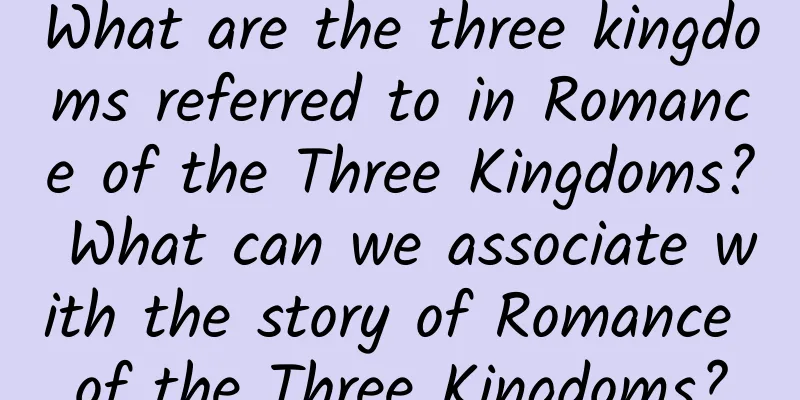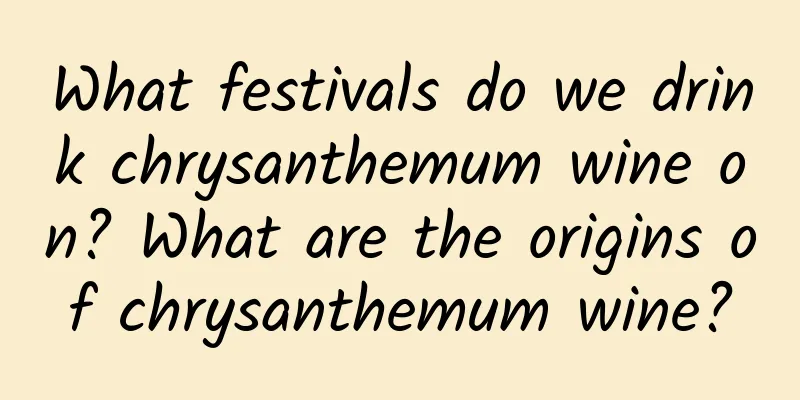What are the three kingdoms referred to in Romance of the Three Kingdoms? What can we associate with the story of Romance of the Three Kingdoms?

|
The Romance of the Three Kingdoms is the first chapter novel in the history of Chinese literature. It is the pioneering work of historical romance novels, the first literati novel, and one of the four great masterpieces of Chinese classical literature. The Romance of the Three Kingdoms describes the historical events of nearly a hundred years from the end of the Eastern Han Dynasty to the beginning of the Western Jin Dynasty. The book reflects the political and military struggles of the Three Kingdoms era, the penetration and transformation of various social contradictions in the Three Kingdoms era, summarizes the great historical changes of this era, and creates a group of heroic figures. The detailed characterization reveals the darkness and corruption within the feudal ruling class through real and moving stories, accuses the tyranny and ugliness of the rulers, and shows the people's strong desire for national rejuvenation. So which three kingdoms are the Three Kingdoms, and is the Romance of the Three Kingdoms true history? I guess many friends will be confused after reading it, let's find out together! Contents of this article 1. What are the three kingdoms referred to in the Romance of the Three Kingdoms? 2. Is Romance of the Three Kingdoms true history? 3. What can we associate with the story of Romance of the Three Kingdoms? 1What are the three kingdoms referred to in Romance of the Three Kingdoms?The Romance of the Three Kingdoms refers to the Kingdom of Wei, the Kingdom of Shu, and the Kingdom of Wu. The full name of the Romance of the Three Kingdoms is The Popular Romance of the Three Kingdoms (also known as The Romance of the Three Kingdoms). It is a long historical romance novel written by Luo Guanzhong in the late Yuan Dynasty and early Ming Dynasty. After the work was published, there were many versions such as the Jiajing Renwu version. In the late Ming and early Qing dynasties, Mao Zonggang reorganized the chapter titles, revised the text, and changed the poems and essays of the Romance of the Three Kingdoms. 2Is Romance of the Three Kingdoms true history?The Romance of the Three Kingdoms is not entirely true history, it is 70% true and 30% fictional. The Romance of the Three Kingdoms is a long chapter-based historical romance novel, adapted from the historical book Records of the Three Kingdoms. The main events in the novel are basically the same as those recorded in Records of the Three Kingdoms, but there are also fictional elements. The Romance of the Three Kingdoms describes the historical events of nearly a hundred years from the end of the Eastern Han Dynasty to the beginning of the Western Jin Dynasty. It mainly describes wars, telling the story of the wars among the heroes in the late Eastern Han Dynasty and the political and military struggles among the three kingdoms of Wei, Shu and Wu, and finally the story of Sima Yan unifying the three kingdoms and establishing the Jin Dynasty. It reflects the transformation of various social struggles and contradictions in the Three Kingdoms era, summarizes the great historical changes of this era, and shapes a group of powerful heroes of the Three Kingdoms. The book can be roughly divided into five parts: the Yellow Turban Rebellion, the Rebellion of Dong Zhuo, the Warring States, the Three Kingdoms, and the Return of the Three Kingdoms to Jin. On the vast historical stage, scenes of magnificent wars were staged. The author Luo Guanzhong integrated the Thirty-Six Strategies of War into the text, with both plots and military strategies. 3What can we associate with the story of Romance of the Three Kingdoms?Several idioms can be associated with the story of Romance of the Three Kingdoms: 1. Peach Garden Oath, Peach Garden Oath is a story recorded in the novel "Romance of the Three Kingdoms"; 2. Borrowing Arrows with Straw Boats: Borrowing Arrows with Straw Boats is a story about the Battle of Red Cliffs in the classic Chinese novel Romance of the Three Kingdoms. 3. The story of Liu Bei visiting Zhuge Liang three times at his thatched cottage in the late Han Dynasty; 4. Liu Shan, the last ruler of Shu, was willing to be captured and did not think of restoring his country. 5. Devote oneself to the country with all one's heart. In "The Second Letter to the Emperor", Zhuge Liang expressed that he was determined to "devote himself to the country with all his heart and soul, and not stop until his death", which showed Zhuge Liang's loyalty to the country. |
<<: What is tilapia and its nutritional value? Why is it harmful to eat tilapia?
Recommend
What is the best cough medicine for pregnant women?
There are many ways to treat cough. When a patien...
Should a girl stop when she screams in pain for the first time?
If women feel severe pain during their first sexu...
What should I do if I have stretch marks on my thighs? These three tips are very effective!
During pregnancy, hormonal changes in women's...
What is the treatment for cervicitis?
For patients with cervicitis, how to completely c...
Why can't a dishwasher wash an iron pan? The principle of an automatic dishwasher
Automatic dishwashers use high-temperature and hi...
What are the techniques for applying mascara?
Once, when I met a female friend, I was startled....
Why does my vaginal discharge smell like fish?
Everyone knows that normal leucorrhea is white mu...
Diagnostic criteria for PCOS
PCOS, polycystic ovary syndrome, is a common endo...
Breast nodules, grade 4
In recent years, more and more women have breast ...
How to treat cervicitis
Cervicitis is a disease in which the uterus is ve...
7 important things to note after IVF egg retrieval
Some patients will experience vaginal bleeding an...
How many durian petals can pregnant women eat in a day
When there is a pregnant woman in the family, the...
Suddenly you can’t smell the aroma of food? It could be the coronavirus
Does the loss of smell mean that you are infected...
How to treat yellow leucorrhea that is bean dregs-like
The leucorrhea is yellow and has a tofu-like cons...
Why is West Lake called West Lake? Historical background of West Lake in Hangzhou
West Lake is a pearl inlaid in this paradise on e...









